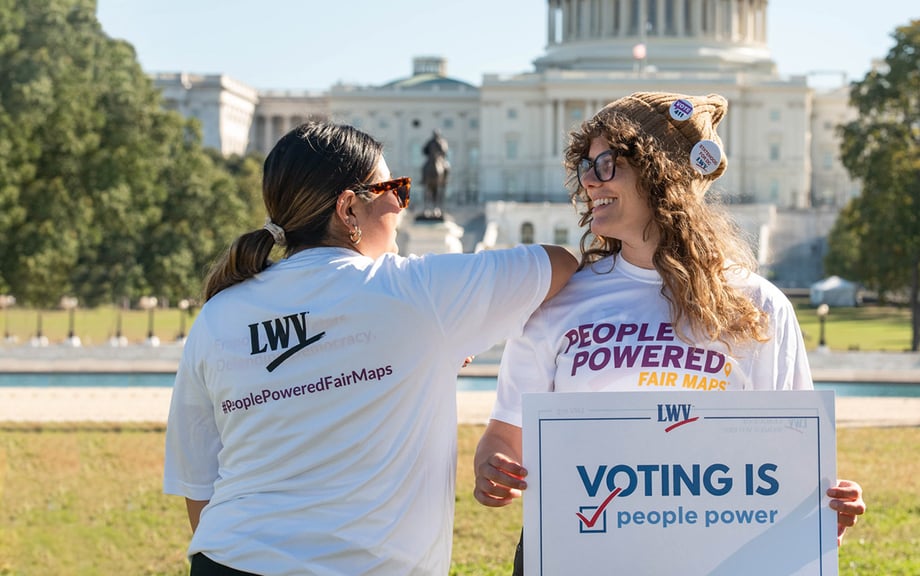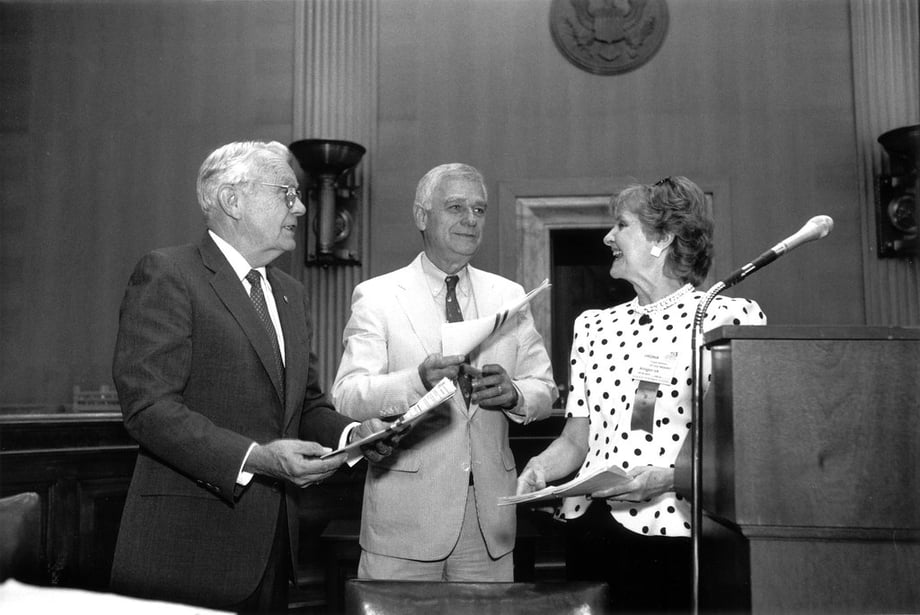The US House is about to vote on legislation that will fundamentally change how we register to vote.
HR 22, the Safeguard American Voter Eligibility (SAVE) Act, will require that every eligible voter provide documentary proof of citizenship to register to vote, even though voters in every state are already required to affirm or verify their citizenship status when registering and voting. Additionally, the citizenship documentation would need to be submitted in person to election officials.
,
Stay Updated
Keep up with the latest in voting rights. Receive emails to your inbox!
,
This bill, meant to “secure our elections,” is a trick that would make it harder for millions of eligible Americans to register to vote and cast their ballots.
If a noncitizen registered to vote or cast a ballot in federal and state elections nationwide, it would already be prohibited several times over. And while some municipalities allow noncitizens to vote in local elections (think school board and city council elections), widespread registration and voting in state and federal elections is not happening.
Who would the SAVE Act Affect?
Every eligible voter could be unnecessarily burdened by the SAVE Act at some point when they update or change their voter registration information. That includes:
- Military Members: Service members would be required to present documentation every time they move and re-register to vote. Further, they would not be able to use their military ID alone to prove citizenship and would need additional documentation to show their birthplace or naturalization status.
- Natural Disaster Survivors: Families impacted by natural disasters often lose important documentation. The SAVE Act would require them to jump through hoops to replace these documents and register to vote while also going through the traumatic process of rebuilding their lives.
- Women, Trans Folks, and Anyone with a Changed Name: Americans who have changed their name, like married women and members of the trans community, would also be required to secure updated documentation to register to vote. There are an estimated 69 million American women who lack paperwork that reflects their current name.
,

,
Is My ID Valid For Voter Registration Under the SAVE Act?
Maybe, but maybe not! The legislation lists several different forms of identification that can be used to provide documentary proof of citizenship, such as passports, birth certificates, military IDs in combination with a record of service that lists a member's birthplace, certain tribal IDs, and a few others.
However, the legislation is ambiguous regarding what additional documentation would be accepted if those items aren’t available or don’t match someone’s name or provide information about their birthplace. As many as 140 million American citizens do not have a passport, one of the acceptable forms of proof of citizenship. This is especially true in rural areas. In West Virginia, Mississippi, and Alabama, over 70% of citizens don’t have a passport.
,
,
State election officials have systems to verify an individual voter’s eligibility and ensure voter rolls are accurate. The bill’s requirement of a document to prove American citizenship to register to vote is unnecessary. It only creates another barrier to the voting process, as many eligible voters do not have easy access to the necessary documents.
The National Voter Registration Act (NVRA) Already Sets Voter Registration Rules
The League was instrumental in the drafting and passage of the National Voter Registration Act of 1993 (NVRA), which increased opportunities for registering to vote across the country.
Since its enactment, the NVRA has enabled millions of Americans to register to vote and streamlined state laws to make the voter registration process more accessible. It’s a landmark piece of legislation that has helped millions of eligible Americans register to vote when seeking a driver's license or public assistance from a designated agency. It does not require documentary proof of citizenship.
,

,
The NVRA has survived previous attempts to weaken it; its opponents should not be able to do so now. Passage of the SAVE Act would severely dilute the NVRA's benefits and threaten the ability of every eligible American to register or update their voter registration.
In addition to its advocacy work, the League has repeatedly turned to litigation to protect and enforce the provisions of the NVRA. Specifically, LWVUS and state Leagues across the country have been involved in litigation to protect voters from harmful, discriminatory laws requiring documentary proof of citizenship (DPOC) to register to vote — a centerpiece of the SAVE Act.
Voter Photo ID and Documentary Citizenship Laws Have Proven Harmful
Similar legislation has already been implemented by some states and has had a demonstrable, negative impact on voters’ ability to participate in elections.
,
,
In 2011, Kansas passed a law that required proof of citizenship to register to vote. When the law went into effect in 2013, more than 31,000 eligible voters were prevented from registering. Federal courts declared this law unconstitutional, and it is no longer enforced. Included in the evidence against the Kansas law was the state’s record that only 39 noncitizens had registered to vote in the two decades prior (1992-2012) to the case’s hearing.
Additional actions to require documentary proof of citizenship in Arizona, Alabama, and Georgia were also struck down.
How Does the New Executive Order Impact the SAVE Act?
On March 25, an executive order was issued with provisions limiting access to voting. The provisions of the SAVE Act are included in the executive order, but this does not mean that the SAVE Act is a done deal. An executive order is not a law.
The executive order is unlawful and is one more example of executive overreach. That said, both the executive order and the SAVE Act are attempts to undermine voting access.
What Can I Do?
This bill is expected to come to the floor of the US House during the week of March 31, 2025. Now is the time to reach out to your representative.
Use the LWVUS action alert to email your Representative now, or find your elected officials and call the district or DC offices!
Together, we can stop this harmful bill. Voters don’t need more obstacles to making their voices heard. Congress must ensure that every eligible US citizen has the freedom to vote unimpeded by discriminatory rules rooted in fear and division.